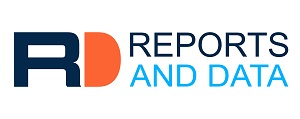Global Diagnostics PCR Market Set to Reach USD 28.6 Billion by 2034

Reports And Data
diagnostics PCR market is projected to grow strongly over the next decade, expanding from USD 12.5 billion in 2024 to USD 28.6 billion by 2034
VANCOUVER, BRITISH COLUMBIA, CANADA, September 9, 2025 /EINPresswire.com/ -- The global diagnostics PCR market is projected to grow strongly over the next decade, expanding from USD 12.5 billion in 2024 to USD 28.6 billion by 2034. This reflects a steady compound annual growth rate (CAGR) of 8.40%, driven by the rising demand for fast and accurate diagnostic solutions in healthcare.Clinical diagnostics are expected to hold the largest share of the market, while point-of-care testing is forecasted to grow the fastest, supported by new portable PCR devices. Key areas of application include infectious disease testing, oncology, and genetic testing, all of which rely on early and precise diagnosis.
North America is projected to remain the leading region, supported by advanced healthcare infrastructure and high research and development investments. At the same time, Asia Pacific is anticipated to record the fastest growth due to rising healthcare spending and rapid adoption of modern diagnostic technologies.
You can Download Free Sample PDF Copy Of This Report At: https://www.reportsanddata.com/download-free-sample/10183
Key Drivers of Growth
A major driver of market expansion is technological progress. Real-time PCR and digital PCR technologies have improved the speed and accuracy of diagnostics, helping healthcare providers detect even low levels of pathogens. Adoption of real-time PCR has been rising at nearly 20% annually, according to the U.S. National Institutes of Health.
Top 10 Companies
Thermo Fisher Scientific
Roche Diagnostics
Bio-Rad Laboratories
Qiagen
Siemens Healthineers
bioMérieux
BGI Genomics
Takara Bio
Sysmex Corporation
Abbott Laboratories
Public funding is also boosting growth. In 2023, the U.S. Department of Health and Human Services allocated USD 2 billion to support advanced diagnostics, including PCR technologies. Product innovation from leading companies is accelerating market momentum. Roche Diagnostics, for example, launched a digital PCR platform in March 2024 that quickly captured 15% of market share within six months.
The use of artificial intelligence in PCR processes is another transformative trend. AI helps analyze PCR data more efficiently, reducing diagnostic errors by up to 30% and cutting turnaround times. These advancements are making PCR-based tests more reliable and accessible across different healthcare settings.
Key Restraints and Challenges
Despite its promising outlook, the diagnostics PCR market faces challenges. Strict regulatory requirements remain a significant barrier, with compliance costs rising under frameworks like the FDA in the U.S. and the new In Vitro Diagnostic Regulation in Europe. A survey by the Regulatory Affairs Professionals Society found that 65% of diagnostic companies cite regulatory compliance as one of their biggest hurdles.
High costs are also an obstacle. PCR equipment and reagents are expensive, and Frost & Sullivan reports prices have been increasing by about 10% annually due to raw material shortages and supply chain issues. Smaller hospitals and clinics often struggle to afford the investment needed for PCR laboratories.
Integration with healthcare IT systems adds another layer of complexity. Research shows that 40% of healthcare providers face difficulties linking PCR results with electronic health records, leading to inefficiencies. In addition, a shortage of skilled technicians and the need for strict storage conditions for reagents create further operational challenges, especially in developing regions.
Market Segmentation
The diagnostics PCR market is segmented by product type, application, end user, technology, and distribution channel. Product categories include instruments, reagents and consumables, and software and services. Applications span infectious disease testing, oncology, and genetic testing. End users range from hospitals and diagnostic laboratories to research institutes and pharmaceutical companies. Key technologies include real-time PCR, digital PCR, and traditional PCR, while sales are carried out through direct channels and distributors.
Diagnostics Pcr Market Segmentation
By Product Type
Instruments
Reagents and Consumables
Software and Services
By Application
Infectious Disease Testing
Oncology
Genetic Testing
Others
By End User
Hospitals and Diagnostic Laboratories
Research and Academic Institutes
Pharmaceutical and Biotechnology Companies
By Technology
Real-Time PCR
Digital PCR
Traditional PCR
By Distribution Channel
Direct Sales
Distributors
Get a Customized Report: https://www.reportsanddata.com/request-customization-form/10183
Future Outlook
The next decade is expected to bring strong opportunities for the diagnostics PCR market. Trends such as the miniaturization of PCR devices have already driven a 25% increase in point-of-care testing adoption, while demand for multiplex PCR assays, which detect multiple pathogens at once, is growing by 30% annually. Supportive regulatory reforms, greater public investment in healthcare infrastructure, and the growing emphasis on preventive healthcare will continue to shape the market.
Leading players in this sector include Thermo Fisher Scientific, Roche Diagnostics, and Bio-Rad Laboratories. These companies are focusing on innovation, partnerships, and new product development to stay competitive in a rapidly advancing market.
With a strong demand for faster, more accurate, and more accessible testing solutions, the diagnostics PCR market is set for sustained growth and technological transformation through 2034.
John W
Reports and Data
+1 2127101370
sales@reportsanddata.com
Legal Disclaimer:
EIN Presswire provides this news content "as is" without warranty of any kind. We do not accept any responsibility or liability for the accuracy, content, images, videos, licenses, completeness, legality, or reliability of the information contained in this article. If you have any complaints or copyright issues related to this article, kindly contact the author above.
